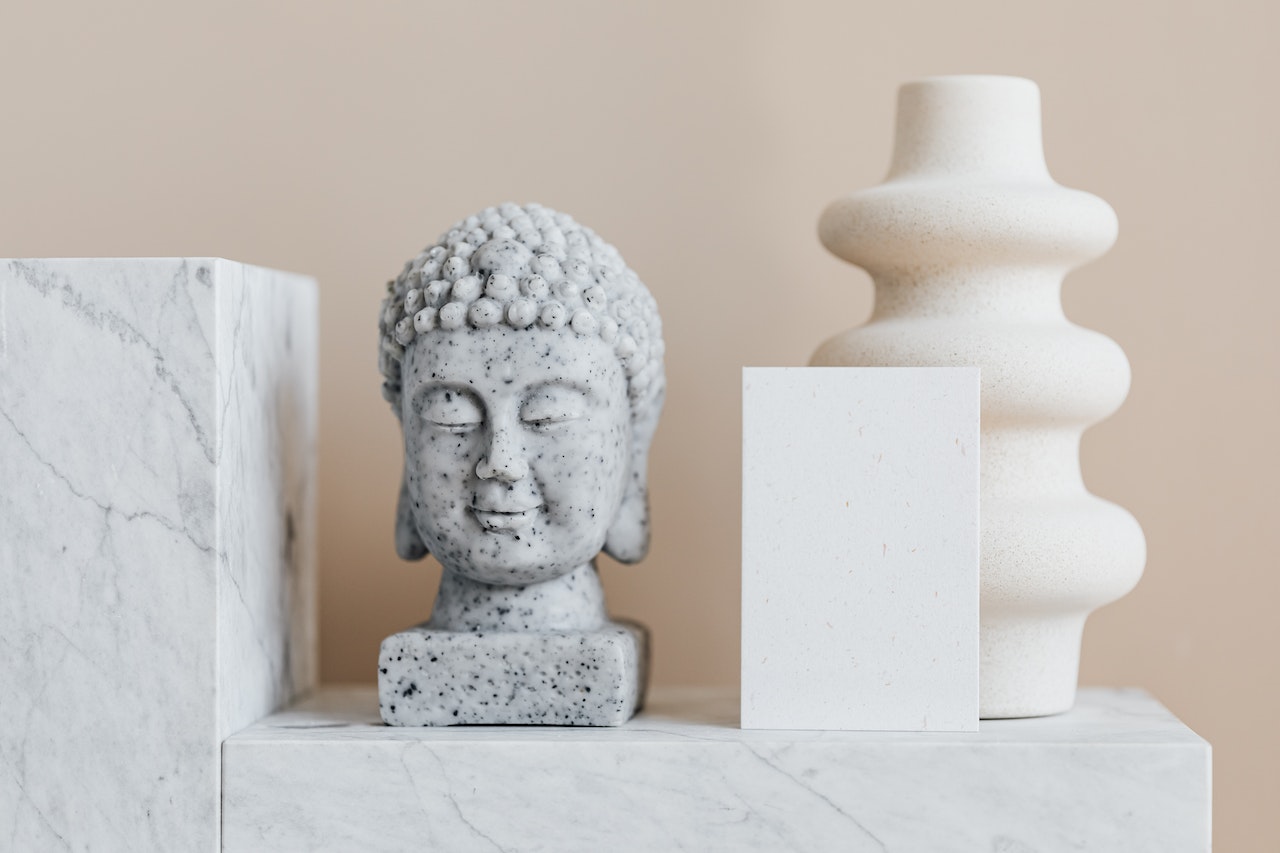Table of Contents
- Introduction: Unveiling Zen Minimalism
- Zen Minimalism: The Art of Less is More
- Exploring the Zen Philosophy
- Minimalism: A Liberation from Excess
- The Synergy of Zen and Minimalism
- Zen Minimalism in Everyday Life
- How Zen Minimalism Influences Design
- Mindful Practices in Zen Minimalism
- The Impact of Zen Minimalism on Mental Well-being
- Embracing the Zen Minimalist Lifestyle
Introduction: Unveiling Zen Minimalism
Join us as we embark on an investigation into the synergy between Zen Buddhism & Minimalism; fostering an existence filled with balance, tranquility & clarity. This post offers thorough comprehension of both belief systems while showcasing their seamless incorporation into daily activities-bringing forward tremendous effect on overall well-being & personal progressions; placing emphasis on expanding one’s mind through prospective spiritual connections focused on obtaining mental peace- unlocking new horizons in contemporary society!
Zen Minimalism: The Art of Less is More
The Essence of Zen Minimalism
The tenets of Zen Minimalism are focused on uncovering the beauty that lies in simple living. This philosophy reinforces de-prioritizing excesses while unveiling the richness inside us despite seemingly limited resources or environments. Embracing a mindset centered around inward tranquility rather than relying on possessions fosters contentment as well as provides insight into meaningful spiritual connections.

The Aesthetic Dimension of Zen Minimalism
Far surpassing a mere way of life, Zen Minimalism embodies an entire aesthetic and perspective. Through the appreciation of sleek designs, open spaces, and muted tones across artistic domains such as architecture and design, this way of being promotes mindfulness. It evokes serene sensations while also inviting introspection.
Exploring the Zen Philosophy
Origins and Principles of Zen
Zen Buddhism originally originated during the Southern and Northern Dynasties of China (420-589) and was founded by the Indian monk Bodhidharma. Patriarch Bodhidharma once visited China and taught a new way of practice—zazen—at the Songshan Shaolin Temple. This spiritual practice emphasizes direct experience of one’s own nature and achieves spiritual awakening through meditation. Zen encourages mindfulness, self-discipline, and embracing the present moment fully.

Zen and Mindfulness
Mindfulness, a pivotal concept in Zen, promotes full engagement with the present moment. It invites us to savor each experience, such as the subtle aroma of tea or the changing hues of a sunset, fostering a deeper connection with the world around us.
Minimalism: A Liberation from Excess
The Roots of Minimalism
Minimalism emerged in the art world during the late 1950s eventually gaining recognition as a modern lifestyle paradigm. The idea behind it is that less truly can be more – putting forward the notion that freeing oneself from superfluous possessions, thoughts or distractions can lead to a richer life experience. By rejecting societal pressure towards consumerism people are able to focus on what truly matters: cultivating meaningful experiences and relationships instead of material excesses.

Minimalism and Personal Liberation
The philosophy of minimalism offers a path towards greater individual autonomy. As it liberates us from the limiting effects of consumer culture and superficiality. Embracing this lifestyle invites a shift in priorities towards fulfilling personal growth and making meaningful contributions to society.
The Synergy of Zen and Minimalism
A Confluence of Philosophies
Zen and Minimalism, while unique in their ways, intersect beautifully. Both advocate for simplicity, mindfulness, and liberation from excess. This shared perspective results in Zen Minimalism, a path that cultivates harmony, balance, and clarity, nurturing our mental, spiritual, and physical wellbeing.
Zen Minimalism in Everyday Life
Practical Application of Zen Minimalism
From decluttering our living space to simplifying our thoughts and fostering mindfulness, Zen Minimalism can be a practical guide in our daily lives. It may involve reducing possessions, creating calm spaces, or spending quiet moments in meditation. Through these practices, we cultivate a serene mind and a fulfilling life.
How Zen Minimalism Influences Design
Zen Minimalism in Interior Design
Zen Minimalism shapes interior design by promoting functionality, simplicity, and serenity. In a Zen Minimalist space, each element is carefully selected and has a purpose, reducing clutter and distraction. The use of natural materials and light creates a calming ambiance that inspires tranquility and mindfulness.

Creating a Zen Minimalist Workspace
Applying Zen Minimalism principles to your workspace can greatly enhance productivity and focus. Begin by eliminating unnecessary items, leaving only essential tools. Organize your space in a way that encourages workflow and provides a serene environment. Consider integrating natural elements such as plants or natural light, which can have a positive impact on mood and cognitive functions. In this article you can find some key principles for designers:
Edit Post “The Art of Luxury Minimalism: 5 Key Principles for Designers” ‹ Chiqio — WordPress
Mindful Practices in Zen Minimalism
Zen Minimalist Meditation
At the crux of all that constitutes Zen lies but its very practice – Meditation. This exercise plays an indispensable role in lending depth to Zen Minimalism as well. When engaging in it regularly with dedication, practitioners cultivate mindfulness that allows them to be more aware of their thoughts as they arise and subside away continually along with nuanced feelings besides developing receptive sensitivity towards their environment also. In whichever form they intend- be it breathing exercises to quiet down racing thoughts or repeating certain calming words alternatively; contemplative thinking without suggesting anything at all; inculcating meditation enables achieving mental clarity while embedding calm within.
Integrating Mindfulness into Everyday Activities
Incorporating mindfulness into daily tasks is a key principle of Zen Minimalism. Whether we are eating, walking, or cleaning. Every moment presents an opportunity to cultivate this practice. Fully engaging in each task can lead to a deep sense of connection and inner peace.

The Impact of Zen Minimalism on Mental Well-being
Reducing Stress and Anxiety
By promoting a mindset centered on living in the present moment Zen Minimalism can efficiently reduce anxiety and alleviate stress. It is this ability that makes it such a potent tool. With mindfulness practices combined with simplifying our external surroundings. Individuals are better equipped at letting go of unproductive thought patterns rooted in past regrets or worries about what’s yet to come. Essentially promoting inner peace through encouraging mental clarity, a focused awareness can be developed that leads us all towards greater serenity in daily life.
Promoting Personal Growth and Self-awareness
Zen Minimalism provides an opportunity to cultivate mindfulness by streamlining both our surroundings and inner thought patterns. Through intentionally reducing clutter in these domains. We pave the way for uninterrupted moments where we may engage with ourselves on a deeper level. Not only does this promote growth as an individual but also offers increased levels of peace surrounding one’s daily existence.
Embracing the Zen Minimalist Lifestyle
As we conclude this exploration of Zen Minimalism, it becomes evident that the fusion of Zen and Minimalism offers a pathway to finding harmony in our lives. By embracing this philosophy, we learn to appreciate simplicity, cultivate mindfulness, and ultimately find peace within ourselves and our environment. In this article you can find some ways to embrace minimalism:
Embracing Minimalism: 10 Ways to Incorporate the Minimalism Philosophy into Your Life – Chiqio


 No products in the cart.
No products in the cart.